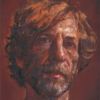7 Best-Selling Quantum Mechanics Books Millions Love
Walter Shaub, Kirk Borne, and Michio Kaku recommend these best-selling Quantum Mechanics books that reveal proven insights and expert-validated approaches.





There's something special about books that both experts and millions of readers embrace—especially in a field as mind-bending as Quantum Mechanics. These 7 best-selling books have captured imaginations by unraveling quantum mysteries and making complex science accessible and compelling right now. Quantum Mechanics continues to impact technology, philosophy, and daily life, sparking curiosity like never before.
Experts like Walter Shaub, former Director of the Office of Government Ethics, found What Is Real? a vital exploration of quantum foundations, enriching his understanding of historical controversies. Astrophysicist Kirk Borne challenges readers with Beyond Weird, a book that pushes beyond classical intuition, while author Neil Gaiman praises Helgoland for bringing quantum science to life with warmth and clarity. These recommendations come from specialists deeply engaged with the subject, lending weight to their picks.
While these popular books provide proven frameworks, readers seeking content tailored to their specific Quantum Mechanics needs might consider creating a personalized Quantum Mechanics book that combines these validated approaches. Tailored books can align with your background, interests, and goals, offering a custom pathway through quantum science.
Recommended by Walter Shaub
Former Director of OfficeGovEthics
“Hey FreelanceAstro, I loved your book "What Is Real." I think the public would really benefit right about now from hearing a brief summary of what Heisenberg told civilized society in Great Britain about his work for the Germans, and what the spy guys knew he did.” (from X)
After years researching the overlooked history of quantum theory, Adam Becker developed a narrative revealing the scientists who challenged mainstream views on quantum mechanics. You get a detailed exploration of figures like John Bell and Hugh Everett, diving into the philosophical battles and scientific controversies that shaped our understanding of reality at the quantum level. Becker’s background in astrophysics and philosophy shines through in his ability to unpack complex ideas, such as the Copenhagen interpretation’s dominance and its critics, making these debates accessible to curious minds. This book suits anyone eager to understand the foundational questions behind quantum physics rather than just its equations or experiments.
Recommended by Robert Crease
Coauthor of The Quantum Moment
“This is the clearest and most insightful description of quantum enigmas that I have ever read. I kept being astonished at how Ball seemed to make one mystery after another vanish. He makes quantum mysteries disappear without removing their uncanniness. Brilliant and innovative, Beyond Weird may alter how quantum mechanics is taught not only to the public but also to physicists. I suspect that teachers of introductory quantum mechanics will be paraphrasing or outright quoting this book for decades.”
by Philip Ball··You?
While working as an editor at Nature, Philip Ball developed a keen sense for how complex scientific ideas can be communicated clearly without losing their nuance. In Beyond Weird, he challenges the notion that quantum mechanics is simply strange phenomena at tiny scales, instead revealing how its principles permeate our everyday reality. You’ll learn about the evolving interpretations of quantum physics, from the limits of knowledge to the shifting concepts of space and time, with Ball unpacking contentious ideas like the Many-Worlds Interpretation. This book suits anyone curious about the foundations of reality and willing to grapple with the counterintuitive nature of quantum theory without expecting easy answers.
by TailoredRead AI·
This tailored book explores battle-tested quantum mechanics methods customized to your unique challenges and goals. It examines foundational quantum concepts and advances through practical, reader-validated knowledge that has resonated with millions. By focusing on your specific background and interests, this book reveals nuanced explanations and applications of quantum phenomena, bridging abstract theory with real-world clarity. This personalized guide ensures you engage deeply with topics that matter most to you, offering a focused and meaningful learning experience that reflects your individual journey in quantum science.
Recommended by Neil Gaiman
Author and storyteller
“Rovelli is a genius and an amazing communicator… This is the place where science comes to life.”
by Carlo Rovelli, Erica Segre, Simon Carnell··You?
by Carlo Rovelli, Erica Segre, Simon Carnell··You?
The breakthrough moment came when Carlo Rovelli reframed quantum mechanics as a theory about relationships rather than isolated substances. Drawing on the historic significance of Helgoland Island—where Heisenberg made pivotal discoveries—Rovelli guides you through the puzzling aspects of quantum theory like entanglement and superposition with refreshing clarity. You’ll explore how reality might be composed of interactions rather than things, a perspective that challenges conventional physics and invites philosophical reflection. Chapters delve into topics such as the nature of quantum states and consciousness, making it well-suited for curious minds eager to grasp the conceptual core, not just technical details.
by John Polkinghorne·You?
by John Polkinghorne·You?
Unlike most quantum mechanics books that focus heavily on complex mathematics, John Polkinghorne's background as a physicist and theologian led him to craft a clear and engaging exploration of quantum theory's core concepts without relying on equations. You’ll gain insight into foundational topics like uncertainty, complementarity, and decoherence, along with the ongoing interpretative challenges that still puzzle scientists decades later. The inclusion of a Mathematical Appendix lets those inclined dive deeper, but the main text remains accessible, making it a thoughtful introduction for anyone curious about the quantum world’s surprising nature. If you want a balanced view of quantum mechanics that respects its mysteries, this book serves you well.
by John Gribbin·You?
by John Gribbin·You?
After exploring the puzzling foundations of quantum theory, John Gribbin developed a narrative that demystifies this complex field by tracing its development through key scientists and groundbreaking experiments. You learn how quantum mechanics underpins technologies from nuclear power to genetic engineering, with chapters that tackle topics such as the atom, radiation, time travel, and even superconductors. The book benefits anyone curious about the scientific principles shaping modern life, offering a clear path through the bizarre and often counterintuitive nature of quantum reality. Rather than overwhelming you with technical jargon, it invites you to reconsider what you know about the physical world, supported by historical context and scientific insight.
by TailoredRead AI·
This tailored book offers a unique journey into quantum mechanics, designed to match your existing knowledge and specific learning objectives. It explores fundamental concepts with clarity, breaking down complex phenomena into manageable, engaging steps. By focusing on your interests and goals, the book reveals key quantum principles and practical applications that accelerate understanding. Each chapter provides a carefully crafted progression, encouraging active engagement and rapid insight into the field's core ideas. Through this personalized approach, you gain a focused, efficient pathway to mastering quantum mechanics fundamentals, making challenging topics accessible and compelling.
by D.I. Blokhintsev·You?
by D.I. Blokhintsev·You?
What started as D.I. Blokhintsev's teaching course on quantum mechanics evolved into a focused exploration of the core theoretical challenges within the field. Instead of skimming over the philosophical debates, Blokhintsev integrates them with theoretical physics, particularly emphasizing the role of measurement instruments both as analyzers of quantum ensembles and detectors of individual events. Through this lens, you gain a nuanced understanding of how observation impacts quantum systems, a topic often glossed in other texts. If you seek to deepen your grasp of quantum mechanics beyond formulas and into interpretative frameworks, this book offers a precise and thought-provoking perspective, especially valuable for physics students and scholars intrigued by the measurement problem.
Recommended by The New York Times
“Kaku spends much of [Quantum Supremacy] recounting the history of computing, bringing listeners back to the Turing machine and the invention of transistors as crucial foundations. That mind-blowing future is the focus. . . . [Kaku's] lucid prose and thought process make abundant sense of this technological turning point.”
Michio Kaku, a physics professor known for his work on string field theory, tackles the complex world of quantum computing with a clear and energetic voice. You’ll explore how this emerging technology could transform industries from medicine to energy, with detailed chapters on breakthroughs like protein folding and nuclear fusion. The book also walks you through the history of computing, grounding futuristic concepts in the evolution of technology. If you’re curious about the intersection of quantum mechanics and real-world applications, this book offers a thoughtful, accessible journey without oversimplifying.
Proven Quantum Mechanics Methods, Personalized ✨
Get expert-backed quantum insights tailored to your unique interests and goals, skipping generic advice.
Trusted by thousands of quantum enthusiasts and experts worldwide
Conclusion
Across these 7 books, a few clear themes emerge: rigorous exploration of quantum foundations, thoughtful engagement with philosophical questions, and accessible explanations that welcome newcomers and enrich experts alike. These works embody proven approaches shaping how we understand the quantum world and its real-world implications.
If you're drawn to historical and conceptual clarity, starting with What Is Real? and Helgoland offers deep perspective. For those eager to grapple with paradoxes and modern interpretations, Beyond Weird and The Philosophy of Quantum Mechanics provide critical insight. And if you want to glimpse the future, Quantum Supremacy reveals how quantum computing might reshape technology.
Alternatively, you can create a personalized Quantum Mechanics book to combine proven methods with your unique needs. These widely-adopted approaches have helped many readers succeed in navigating the complexities of quantum science.
Frequently Asked Questions
I'm overwhelmed by choice – which book should I start with?
Start with What Is Real? for a solid historical foundation or Quantum Theory for a concise overview. These books build a clear base before exploring deeper concepts in others.
Are these books too advanced for someone new to Quantum Mechanics?
Not at all. Books like In Search of Schrödinger's Cat and Quantum Theory are designed to introduce concepts clearly without heavy math, making them accessible to beginners.
What's the best order to read these books?
Begin with accessible introductions like Quantum Theory or In Search of Schrödinger's Cat. Then explore foundational debates in What Is Real? and Beyond Weird. Finish with Quantum Supremacy to see technology's future.
Do I really need to read all of these, or can I just pick one?
You can pick based on your interest—historical, philosophical, or technological. Each book stands well alone but together they offer a richer, multifaceted understanding.
Are these books outdated given how fast Quantum Mechanics changes?
These titles remain relevant as they focus on core principles, interpretations, and emerging technologies, offering insights that endure beyond rapid scientific shifts.
How can I get tailored Quantum Mechanics insights without reading multiple books?
While these books provide expert-vetted knowledge, you can create a personalized Quantum Mechanics book that combines proven methods with your specific background and goals for focused learning.
📚 Love this book list?
Help fellow book lovers discover great books, share this curated list with others!
Related Articles You May Like
Explore more curated book recommendations






